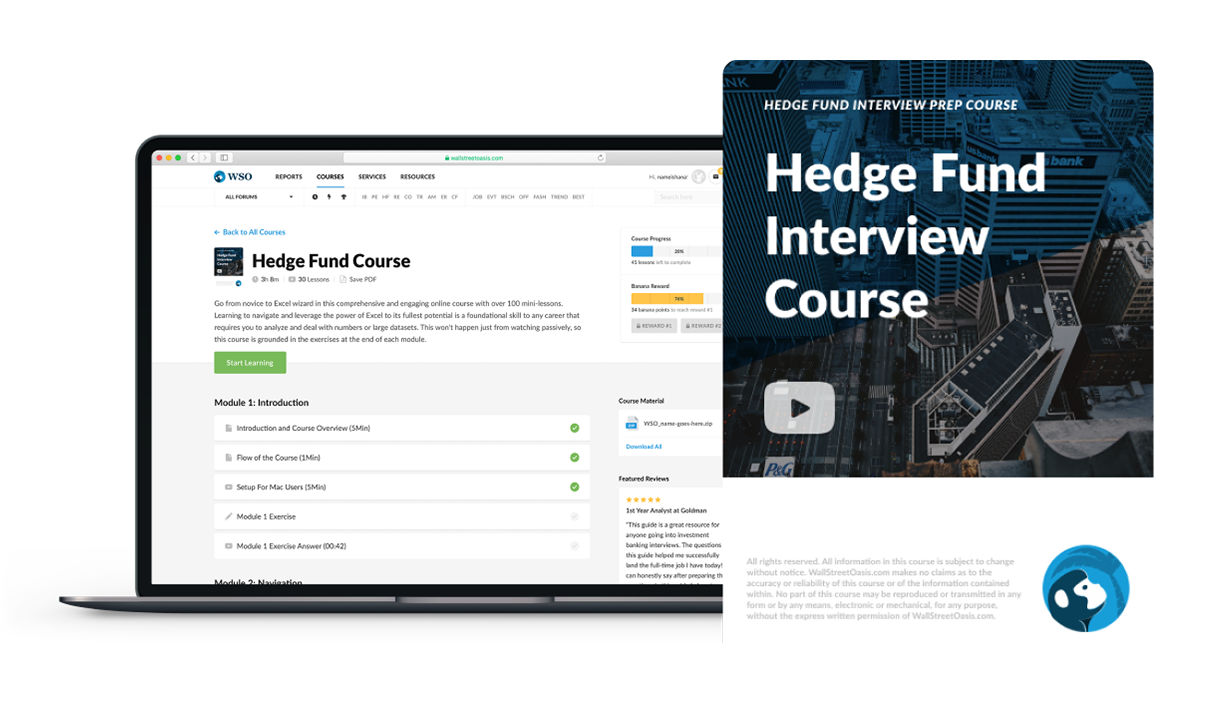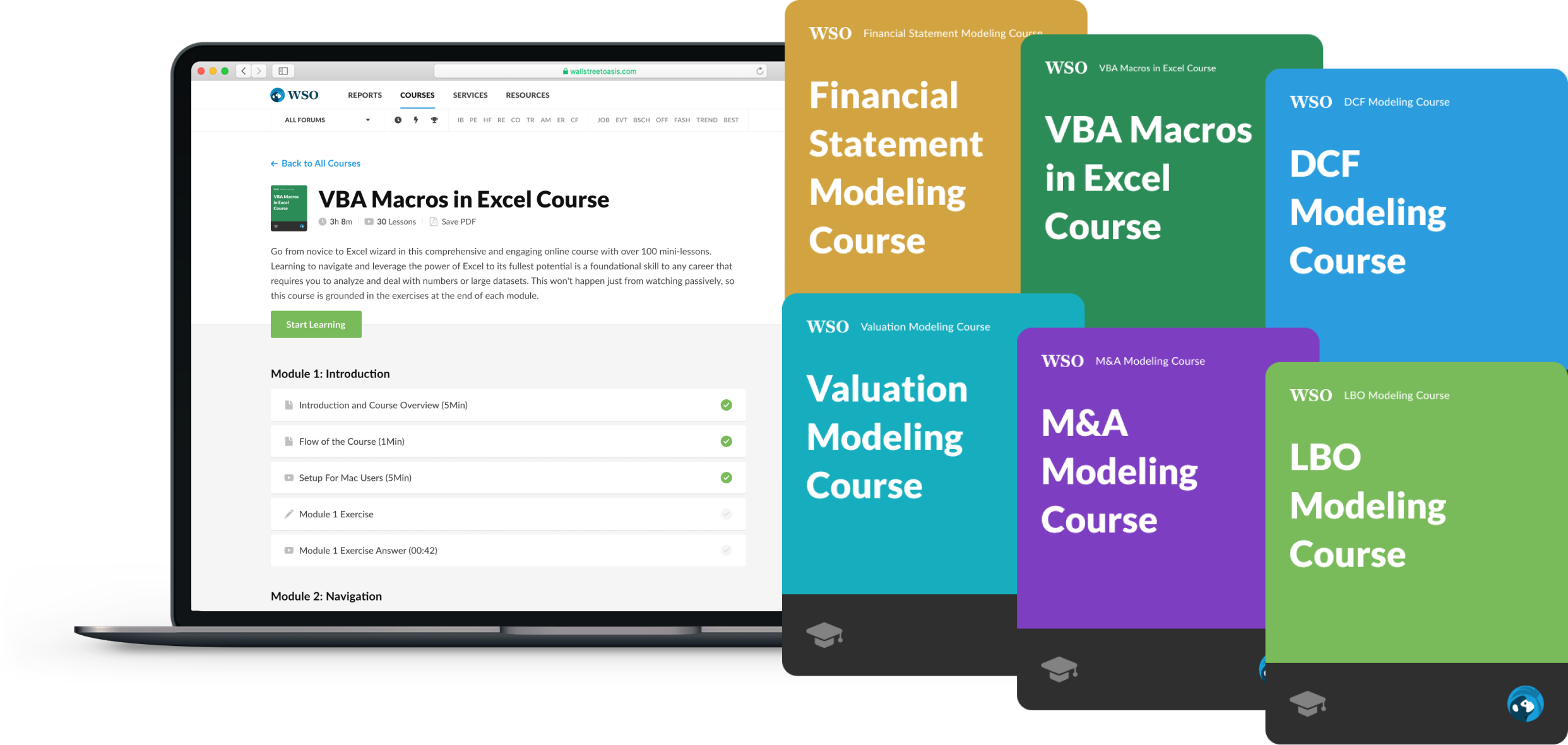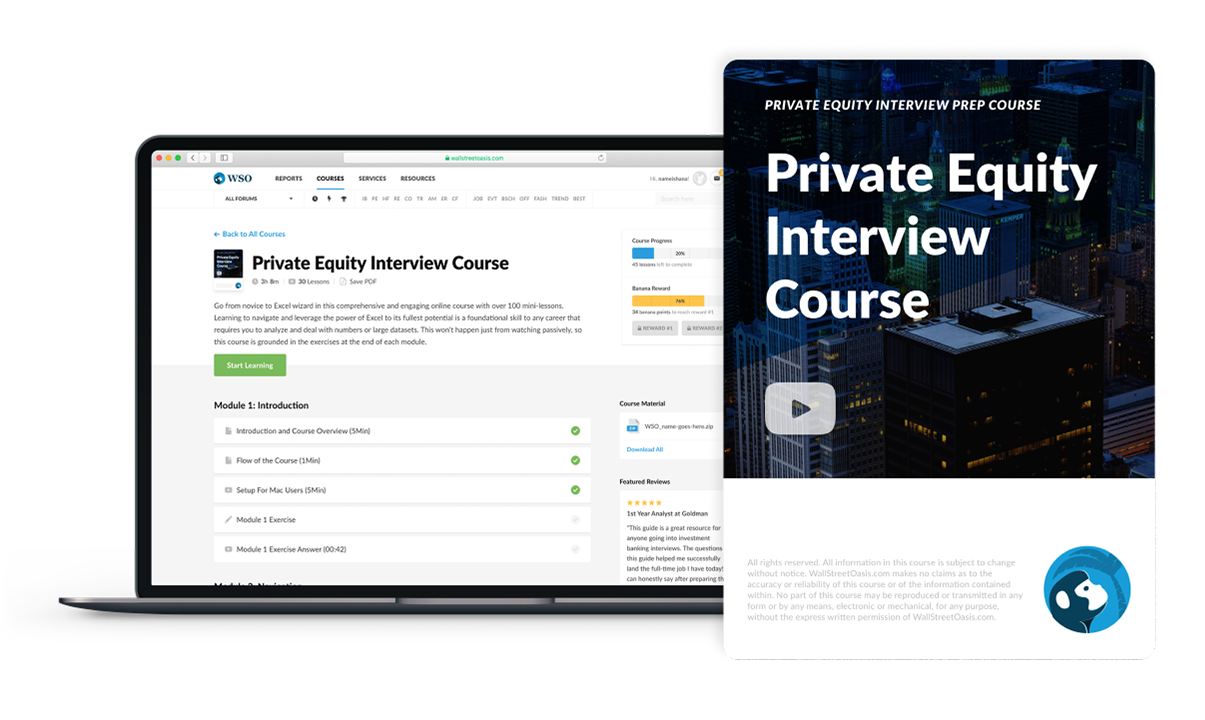
Private Equity vs Hedge Fund
The former refers to investment funds that buy and restructure businesses, and the latter is a pooled investment vehicle that trades in relatively liquid assets.
Usually, a career in Private Equity or Hedge Funds will intrigue highly ambitious economics/finance students. Private Equity and Hedge funds offer great career paths and numerous opportunities.

Private equity and hedge funds are set up as collective investments of high-net-worth individuals or institutional investors. But each fund makes very diverse kinds of investments.
Private equity (PE) is a term used to describe investment funds that buy and restructure businesses. These funds are typically organized as limited partnerships.
A hedge fund is a pooled investment vehicle that trades in relatively liquid assets and has access to a variety of more sophisticated trading, portfolio construction, and risk management strategies, including short selling, leverage, and derivatives, to increase performance.
Deals involving hedge funds and private equity are included in the asset class of alternative investments. However, they invest in different assets and operate over various time frames.
Private equity funds buy entire businesses and invest in them for up to ten years while seeking to raise the value of their investment.
On the other hand, hedge funds invest in assets that can be quickly sold for a profit.
What is Private Equity?
Private equity is a financial sector where firms invest in privately held businesses or businesses that aren't publicly traded.

Investment partnerships that acquire and run businesses before selling them are known as private equity. Private equity firms manage these investment funds on behalf of accredited and institutional investors.
Private equity refers to investing in private businesses, and private equity firms are the organizations that carry out this practice.
Private equity firms manage these funds and utilize them to acquire a majority interest in or buy out a private company. Then, typically after restructuring and raising the company's profitability, they sell the business or its stock for a profit after restructuring and boosting the company's profitability.
Private equity firms may specialize in particular industries, such as real estate, technology, or healthcare. In addition, there are limited and general partners within the company.

Institutional investors, pension funds, and private investors compromise limited partners. Although they hold most of the fund's shares, limited partners aren't allowed to lose more than they put in.
The firm, or the general partners, are the ones who decide where, when, and how to deploy limited partner capital. Although they only possess a small portion of the fund, general partners are responsible for the entire loss if their investment choices are unsuccessful.
How do private equity companies generate income?
To invest in private businesses, grow them, and sell them years later, private equity firms must raise money from institutional investors (such as pension funds, insurance companies, sovereign wealth funds, and family offices).
Usually, the money raised to buy these companies are funded by debt, so private equity firms will thrive in an environment where interest rates are low and access to debt is relatively easier than in periods when economic uncertainty arises.

This ensures that investors receive higher returns than they can dependably expect from investments in the public markets. In addition, some PE funds might take public companies that are financially distressed private.
By restructuring its business operations and cutting costs to make the business profitable again. After a couple of years, the PE firm might take the company public again, which can reimburse huge returns for the fund and investors.
Private equity firms often make three categories of investments:
- Venture Capital: Money invested in start-up or early-stage businesses.
- Growth Equity: An investment in a company's development throughout its middle stages.
- Buyouts: Wholly acquiring an established business.
These are investments for the long run, and businesses may need to wait up to 10 years before seeing any substantial profits. However, private equity firms earn money from a fee structure in addition to these investment returns.
AUM, or the amount of money the limited partner has entrusted to the firm, is the measure businesses use to calculate the management fee often charged to limited partners. Then, companies collect a performance fee, typically around 20% of an investment's earnings.
What are Hedge Funds?
A hedge fund is an investment organization that pools certified investors' funds to invest in securities and other assets to generate profits.

Due to less severe regulations, hedge funds can take more risk than normal mutual funds or asset management firms, using a "high risk" and "high reward" strategy.
Hedge funds invest a pooled sum of money from accredited investors to seek outsized profits, frequently by employing high-risk techniques, such as investing with leverage, shorting stocks, or taking concentrated holdings.
Compared to index mutual funds and most managed mutual funds, hedge funds charge greater fees.
How are hedge funds profitable? Two and twenty (or "2 and 20") is a well-known fee structure in venture capital, private equity, and the hedge fund industry.

Companies that operate hedge funds often charge clients a management fee and a performance fee. The term "two" refers to the annual management fee the hedge fund charges for managing assets, which equals 2% of assets under management (AUM).
The term "twenty" refers to the typical incentive or performance fee of 20% of the fund's profits over a predetermined benchmark.
Even though many hedge fund managers have become exceedingly wealthy because of this attractive fee arrangement, investors and politicians have recently criticized the fee structure.

Everything You Need To Break into Hedge Funds
Sign Up to The Insider's Guide on How to Land the Most Prestigious Buyside Roles on Wall Street.
The Structure of the Non-Quant Hedge Funds
Like in any professional services firm, the work is divided into various divisions within the entity. Each specific division or department has a distinctive role and goal. Usually, these divisions fall into three categories:

Several fund managers have employed various investing methods, including the type of assets to invest in. This increased the variety of hedge funds. However, non-quant hedge funds usually fall into one of the three categories below:
- The research/investment analysts and portfolio managers
One who develops and assesses ideas and decides which investments to make. - Trading Team
The traders carry out the strategies of the Investment Team and strive to get the best price possible on each trade. - Middle and Back Office
Supporting departments, including compliance, accounting, operations, and IT, make up a hedge fund's back office.
Along with the ones mentioned above, there are additional aspects, such as risk management and investor relations.
Hedge funds are often divided into the following types based on the following factors:
- By asset class, such as securities, bonds, financial instruments, foreign exchange, convertibles, private contracts, or a mix of these.
- By sector of interest: E.g., Technology, healthcare, energy, or generalist.
- Using a fund model: E.g., Single-manager vs. multi-manager
- By fund size: E.g., under $1 billion AUM, $1 billion to $5 billion, and over $10 billion
Other variations include the investing method (bureaucratic vs. relatively free), the number of names covered by each analyst, the degree of activism, the work environment, and the way of life.

However, most funds don't disclose information that is easily accessible on those topics. In addition, hedge funds can also be categorized according to their investment approach:
- Global macro hedge funds are actively managed investment vehicles that aim to make money from significant market fluctuations brought on by political or economic events.
- An equity hedge fund invests in profitable stocks globally or only in a single nation, protecting itself against equity market declines by selling short expensive equities or stock indices.
- A relative value hedge fund takes advantage of short-term prices or spreads inefficiencies to profit from disparities in the prices of comparable securities.
- An activist hedge fund invests in firms to raise the stock price by demanding a reduction in expenses, reorganization of assets, or replacing the board of directors.
Private Equity vs. Hedge Funds: The Nature of the Work
Both industries employ valuation and financial modeling. However, due to private equity's longer holding times, financial models tend to be more detailed. Both call for exceptional people abilities.

Analysts/Associates at private equity firms and hedge funds will interact with clients and most likely work in teams of 5–10 persons. Therefore, it is crucial to communicate your thoughts clearly and effectively, especially if the work environment is fast-paced.
As a junior-level employee in private equity, your typical duties would be
- Sourcing deals.
- Examining prospective investments.
- Financial modeling and valuation.
- Keeping an eye on portfolio firms.
- Aiding in bolt-on acquisitions or getting portfolio companies ready for sale.
- Coordinating the investigation of potential transactions.
- Meeting with financial professionals, including bankers, attorneys, and lenders.
Like investment banking, you'll spend a lot of time on Word, Excel, and PowerPoint, but instead of trying to sell your customer, you'll look at each firm critically.

In contrast, classic hedge funds only perform two everyday tasks: research and analysis.
You spend most of your time doing the following:
- Generating ideas for investments;
- Creating models and researching to bolster your arguments; and
- Pitching the senior team with your ideas.
You continue to monitor your open positions, but the Portfolio Manager, not the Analyst or Senior Analyst, is often in charge of fund-wide and logistical matters.
Everything is shorter-term and higher-tempo, there are no deals, and portfolio firms don't exist the same way.
Both industries employ valuation and financial modeling, but due to private equity's longer holding times, financial models tend to be more detailed.
Education Is Necessary
Neither private equity nor a career in hedge funds requires strict, uniform educational requirements, unlike medicine or law. Usually, entry-level analyst positions are open to bachelor's/master's degree graduates and can get promoted with only a bachelor's degree.

However, these professions frequently have intense competition. More than simply attending college and earning respectable marks is required to land offers. Successful applicants go above and above by demonstrating a keen interest in finance and honing abilities specific to the field.
Although both fields value postgraduate degrees, many successful investment bankers and asset managers start with just a bachelor's degree.
Some of the most preferred candidates in PE come from backgrounds of Masters in Finance or an MBA from top-tier universities. In addition, the candidates may pump their chances of getting hired by completing professional certifications like the CFA, CAIA, or ACA.
Here CAIA stands for Certified Alternative Investment Analyst, which focuses on real estate, structured products, hedge funds, alternative investment, risk & risk management, and also studying professional ethics and standards.
And ACA deals with accounting, assurance, business planning, strategy, reporting, etc.
Skills Necessary
Recruiters look for candidates with a solid background in investment banking, strategy consulting, corporate growth, or restructuring.

Important associate-level competencies include understanding a particular industry's operations, aptitude for developing and analyzing spreadsheets, knowledge of how firms operate and how management interventions could benefit them, and aptitude for researching markets, competitors, consumers, etc.
In addition, the necessary educational background, excellent quantitative abilities with a track record, a thorough awareness of the hedge fund sector and particular organizations, and certifications like a CFA, CAIA, or CHA (Chartered Hedge Fund Associate) are all advantageous.
Knowledge-based skills (acquired through school, self-study, and work experience) and personal abilities in communication, teamwork, and risk-taking are the two main types of skills employers seek in job candidates.
Beginning Salary in US Dollars
Salaries in types of jobs vary according to years of experience, deals you've worked on, and the name of the firm you previously worked at if you apply for a role that requires experience.

An estimate of how salaries are in these jobs is
Private Equity:
- Analyst: 100k - 150k
- Associate: 150k - 300k
- Senior Associate: 300k - 450k
- Vice President: 450k - 650k
- Director: 650k - 800k
- Managing Director or Partner: 800k - 2M+
Hedge Funds:
- Junior Analyst: 100k - 150k
- Analyst: 200k - 600k
- Sector Head or Senior Analyst: 600k - 1M
- Portfolio Manager: 600k - 2M+
Work-Life Harmony
In the private equity industry, the typical workweek begins with 60 hours. After that, a range of 60 to 70 hours is worked each week. Frequently, smaller funds will be at the lower end of the spectrum, and larger funds will be at the higher end.

Furthermore, the deals have a significant impact on the workload. For example, if there are specific meetings on Monday, you will labor into the wee hours, but if there are no pressing obligations, you can leave by nine.
Naturally, you'll need to work harder to establish yourself if you're new to private equity, but your weekends might be free. Long hours are expected in any support role at the analyst and associate levels, and working from 8 a.m. to 7 p.m. wouldn't be considered oppressive.
Hedge fund analysts can put in anywhere from 60 to 80 hours per week-or even more. But, of course, the number of hours worked varies depending on the state of the markets.
Although hours can vary, a work week of 50 to 70 hours is the norm. But, of course, this also depends on the firm you are working at.

Everything You Need To Master Financial Modeling
To Help You Thrive in the Most Prestigious Jobs on Wall Street.
Career Development in Private Equity
Your position will vastly depend on your past experiences before joining the Private Equity firm.

Whether you are a fresh graduate and private equity is your first job, you're an experienced management/strategy consultant or investment banker, or even you have experience as a private equity associate, PE funds will usually hire individuals from various backgrounds.
However, most professionals hired by these funds tend to have previously worked as Investment Banking analysts or as Management consultants at Top Investment banks or Consulting firms, respectively.
The skills developed in these jobs are crucial for working and succeeding in PE funds.
It justifies why PE funds tend to hire individuals from these backgrounds. However, it's also important to point out that finance as an industry is fast-paced, and individuals tend to work under pressure, especially during live dealings.
Therefore, these firms are usually better off hiring employees with relevant experience working on large deals under pressure during a short period.

Moreover, the list below will provide a good overview of the positions within a Private Equity firm.
- Analyst.
- Associate (Pre-MBA)
- Senior Associate
- Vice President and Deals Manager.
- Director or Principal - Deal-maker and deal-negotiator.
- Managing Director or Partner - Chief Representative and Fundraiser.
Career development in Hedge Funds
It usually involves smaller companies than Investment Banks or Consulting firms in terms of employee size. Hedge funds also prefer hiring individuals who developed highly relevant skills that can be implemented directly into the job.

These firms tend to hire investment banking analysts or research analysts/quants who work in the investment bank's asset management/sales and trading divisions since these employees have developed extremely similar skills needed in the day-to-day life of a hedge fund analyst.
Also, hedge funds might hire traders who previously worked at large investment banks to benefit from their expertise in executing trades.
Of course, your position will heavily depend on the firm you are working at. But the list that follows will give you a solid idea of the roles in most hedge funds:
- Junior Analyst or Research Associate
- Hedge Fund Analyst - Researcher and Number Cruncher.
- Senior Analyst or Sector Head - Investment Idea Generator and Pitcher.
- Hedge Fund Portfolio Manager - Firm Representative and Decision-Maker.
The path could look like this on the execution trading side:
- Junior Trader or Trader in Training (Execution Trader).
- Head Trader or Senior Trader - Trader with (more) P&L Responsibilities.
Biggest Players in the game
The Greenwich, Connecticut-based AQR Capital Management creates financial models centered on value and momentum investing using quantitative research.

Based in Westport, Connecticut, Bridgewater Associates serves pension funds, foreign governments, central banks, university endowments, nonprofit organizations, and other institutional investors.
Man Group is a British hedge fund with more than 230 years of trading experience. It began in 1784 as a sole rum supplier to the Royal Navy and expanded into sugar, coffee, and cocoa trading.
The Blackstone Group was established in 1985 and had offices across the globe, including New York, Beijing, London, Hong Kong, and Dubai.
With its headquarters in New York and its founding in 1976, KKR & Co is renowned for being one of the first companies to significantly perform leveraged buyouts, which is now one of the firm's areas of expertise.
Important Reminder
Undergraduates frequently begin their careers as investment banking analysts. Then, after a few years, they use their skills to transition into different industries (sometimes known as "exit options"), like private equity, hedge funds, and corporate development.

Since more hedge funds and private equity firms are hiring from undergraduate programs, it is now possible to land an offer even if you lack expertise in investment banking.
Also, remember that most recruits come from the consulting, sales, and investment banking sectors (mainly for Private Equity).
Key Takeaways
- The biggest similarity between hedge funds and private equity firms is that both are well-known, high-paying careers that people enter after working in investment banking for a while.
- People must be able to operate under pressure and pay close attention to detail in both jobs and sectors.
- The importance of having the capacity for effective and clear communication cannot be overstated.
- Hedge fund analysts and PE associates will need to pitch and talk about investment ideas and tactics with customers, coworkers, and managers.
- Therefore, communicating ideas correctly will increase your chances of getting promoted and engaging in important transactions.
- PE partners typically have a broad understanding of how a corporation should operate and how to enhance them.
- On the other hand, hedge fund analysts tend to be more technical, searching for data they can use to speculate and, as a result, place trades to make money.
- This explains why PE funds rarely employ research analysts who focus on particular asset classes or even traders and instead frequently hire consultants with broad experience handling various business complications within various industries.

Everything You Need To Break into Private Equity
Sign Up to The Insider's Guide on How to Land the Most Prestigious Buyside Roles on Wall Street.
.jpg?itok=DxumzaOP)

or Want to Sign up with your social account?